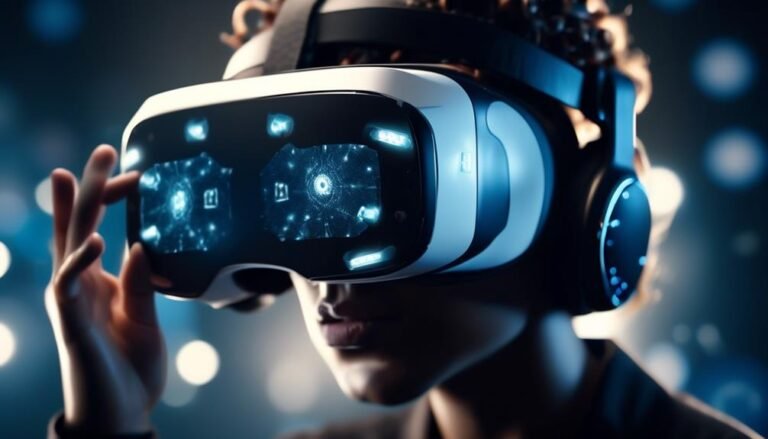Unlocking the Secrets of Learner Experience Success
In the intricate tapestry of education and professional development, the key to unlocking learner experience success lies in a multifaceted approach that goes beyond conventional strategies.
By dissecting the underlying principles that drive effective learning outcomes, a new realm of possibilities emerges.
From tailored engagement techniques to the seamless integration of collaborative tools, the landscape of learner experience is evolving rapidly.
Stay tuned as we unravel the enigmatic secrets that hold the power to revolutionize how we perceive and cultivate successful learning journeys.
Key Takeaways
- Meaningful content in relevant context drives learner engagement and retention.
- Personalized learning journeys enhance higher-order thinking and skill development.
- Emotional connections and tailored experiences boost learner satisfaction and performance.
- Agile, context-driven approaches deliver impactful learning experiences for business success.
Learner Needs Over Content Quantity
In prioritizing learner needs over content quantity, the essential focus shifts towards creating meaningful and engaging learning experiences that resonate with the learners' objectives and aspirations.
By emphasizing personalized learning, educators can tailor resources to individual preferences, fostering higher levels of engagement. This approach acknowledges that the quality of content surpasses the quantity, ensuring that learners actively participate in their educational journey.
Personalization allows for a more profound connection between the material and the learner, leading to increased retention and understanding. Through personalized learning experiences, students are encouraged to explore, reflect, and apply knowledge in ways that are relevant and impactful to their unique goals.
Ultimately, prioritizing learner engagement and personalized learning cultivates a more enriching and effective educational environment.
Key Elements for Positive Experience
Central to fostering a successful learner experience are the core elements that drive engagement, collaboration, and application within the educational journey.
- Engagement Strategies: Employing interactive activities, gamification, and real-world scenarios to captivate learners' interest.
- Personalized Resources: Tailoring content to individual learning styles, preferences, and proficiency levels for a more effective learning experience.
- Seamless Interaction: Facilitating easy access to resources, encouraging communication between learners, and providing opportunities for practical application of knowledge.
These key elements not only enhance the overall learning experience but also contribute to a deeper understanding and retention of the material. By focusing on engagement strategies and personalized resources, educators can create a dynamic and enriching environment for learners to thrive.
Impact of Emotional Reactions
The emotional reactions elicited during the learning process play a pivotal role in shaping the overall impact and effectiveness of the educational experience. Emotional engagement is crucial as it enhances learning retention by creating a deeper connection between the learner and the material. Positive emotional reactions, such as curiosity and accomplishment, not only make the learning experience more enjoyable but also increase the likelihood of information retention.
When learners feel engaged and motivated, they are more likely to invest themselves fully in the learning process, leading to better outcomes. Tailoring experiences to evoke positive emotional responses can significantly improve the overall effectiveness of educational initiatives, fostering a conducive environment for enhanced learning and application.
Context and Activities in Learning
Effective learning experiences are intricately woven with the interplay between context and activities, shaping the foundation for meaningful knowledge acquisition. When designing learning experiences, the following aspects play a crucial role:
- Activity Effectiveness: Engaging learners in activities that promote active participation and application of knowledge enhances the learning process.
- Contextual Learning: Placing content within a relevant context that mirrors real-world scenarios helps learners connect theory to practice effectively.
- Alignment with Business Shifts: Learning experiences that adapt to the evolving needs of the business environment ensure that learners are equipped to navigate challenges in real-time.
Business Success Through Learner Experience
Optimizing learner experience within a business setting is pivotal for driving sustainable growth and organizational success. Personalized learning initiatives tailored to individual needs can significantly enhance employee engagement and performance.
By implementing a blended approach that combines traditional classroom training with online resources, businesses can create dynamic learning environments that promote skill development and knowledge retention. This approach not only allows for flexibility and accessibility but also enables employees to apply new concepts directly to their roles, fostering a culture of continuous learning and improvement.
Investing in personalized learning experiences through a blended approach can lead to increased employee satisfaction, improved skill development, and ultimately, a positive impact on the overall performance of the organization.
Factors Influencing Learner Experience
Factors that shape the learner experience play a pivotal role in determining the efficacy and impact of educational initiatives. When considering the learner experience, several key factors stand out:
- Personalization: Tailoring resources and learning paths to individual needs enhances engagement and relevance.
- Adaptability: The ability of the learning experience to adjust to different preferences and learning styles ensures inclusivity and effectiveness.
- Interactivity and Engagement: Incorporating interactive elements and fostering engagement throughout the learning journey boosts motivation and knowledge retention.
These factors contribute significantly to creating a dynamic and effective learning environment that meets the diverse needs of modern learners. By prioritizing personalization, adaptability, interactivity, and engagement, educational initiatives can achieve higher levels of success and learner satisfaction.
Future Trends in Learning Success
As the landscape of education evolves rapidly, the integration of AI and machine learning, personalized learning paths, virtual and augmented reality applications, microlearning, and gamification are emerging as pivotal elements shaping the future of learning success.
Personalized learning, driven by AI integration, allows tailored learning experiences that cater to individual needs and preferences.
Virtual and augmented reality applications offer immersive learning environments, enhancing engagement and retention.
Microlearning, with its bite-sized content delivery, promotes knowledge retention and application.
Gamification techniques make learning interactive and enjoyable, motivating learners to progress.
These trends signify a shift towards more adaptive, engaging, and effective learning approaches that prioritize individualized learning journeys and harness the power of technology to optimize educational outcomes.
Conclusion
In conclusion, the secrets to achieving learner experience success lie in catering to individual needs, focusing on key elements like engagement and collaboration, and understanding the impact of emotional reactions.
By prioritizing context-driven learning activities and continuous improvement, businesses can enhance learner experiences and drive success.
The future of learning success holds boundless opportunities for growth and innovation, shaping the landscape of education in unprecedented ways.







